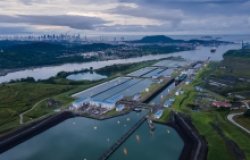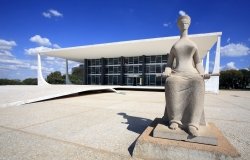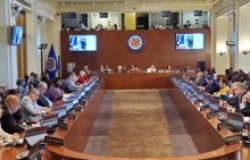Call-in Briefing: Peru's Presidential Election
Conference call on Peru's 2016 Presidential elections.
Overview
On June 5, 2016 Peruvians will go to the polls in a run-off election between Keiko Fujimori of the Fuerza Popular party, and Pedro Pablo Kuczynski of Peruanos por el Kambio, who has held numerous government posts going back to the 1960s, including former Minister of Economy and Finance. Recent polls had put the two candidates neck and neck, but on Sunday the polling firm Ipsos released figures showing that Fujimori had pulled ahead by as much as 5 percentage points. This, even after revelations that the US Drug Enforcement Administration was investigating the secretary general of Fujimori’s party for money laundering. (He has stepped down and denies the allegations).
The context for elections in Peru is always challenging. Distrust of political parties in Peru is high and has gotten worse over the last 8 years. According to the Americas Barometer, less than 10 percent of Peruvians trust political parties, a rate that is among the worst in all of Latin America. Peru’s electoral authority, the national election commission, disqualified two candidates before the first round of elections in April, leading to charges that the Electoral commission was applying electoral rules selectively and, notably, not against Keiko Fujimori.
Polarization has accelerated in this election context, between supporters of Fujimori and those who reject her as the continuation of the authoritarian legacy of her father, Alberto Fujimori. Alberto Fujimori in 1992 staged a self-coup that dissolved Congress and other institutions. He is serving jail time for the human rights abuses and corruption during his terms in office.
Yet in economic terms, the country has fared exceedingly well. Over the last 20 + years, per capita income has grown approximately 3 percent per year, almost double the rate in the rest of Latin America. Poverty was more than cut in half between 2001 and 2014.
Against this background, what are the defining issues of the campaign and what do they tell us about the future of Peruvian politics? Who is likely to inherit the votes of the almost 12 percent of the public that still says that it’s undecided? How has Fujimori attempted to distance herself from her father, while still tapping into reserves of support for him, especially among the poor? How, if at all, will management of the economy change under a new administration?
Speakers
Hosted By

Latin America Program
The Wilson Center’s prestigious Latin America Program provides non-partisan expertise to a broad community of decision makers in the United States and Latin America on critical policy issues facing the Hemisphere. The Program provides insightful and actionable research for policymakers, private sector leaders, journalists, and public intellectuals in the United States and Latin America. To bridge the gap between scholarship and policy action, it fosters new inquiry, sponsors high-level public and private meetings among multiple stakeholders, and explores policy options to improve outcomes for citizens throughout the Americas. Drawing on the Wilson Center’s strength as the nation’s key non-partisan policy forum, the Program serves as a trusted source of analysis and a vital point of contact between the worlds of scholarship and action. Read more
Thank you for your interest in this event. Please send any feedback or questions to our Events staff.













